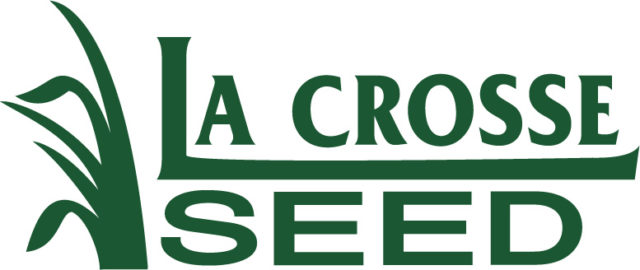Crop managers and livestock managers with crops have been planning all winter for planting to arrive. Now it is time to be a doer (plant, spray, etc.). Right? Well, yes and no.
Yes, because with everything ready to go, you can now lead by example – use your pacesetting leadership style. No, however, because you still are the leader. If you devote all or too much of your time to doing, the productivity of others on your team will suffer. So, what roles are needed now by you as the leader?
First, you are still the leader and must continue to provide direction by reinforcing the vision and plans you have laid out. There will also be numerous times when those plans must change, “call audibles.” You must then make certain everyone understands the new plan – provide clarity or “chalk the field.”
In your role as the leader, in order to maximize the productivity of each individual, and thus the team, you must successfully execute the following roles.
Training
I am certain you have completed all possible training in preparation for the busy season. Unfortunately, there often is no substitute for the real thing. Also, many operations occur only once a year, and those who have completed the task before may still need training, especially if technology or procedures have been changed or updated.
For training, it is easy to skip key steps. Use the prepare, tell, show, do and review training sequence, and only skip a step when you are absolutely certain it is not needed. The review step is crucial and is not limited to a final summary. It includes circling back to answer questions and concerns the users may have. It is important to say you will be checking back, so they do not think you are “checking up on them.” Rather, you are helping them succeed. In your review, you might even use my favorite two questions: What is going well, and what could be going better?
Positive feedback, encouragement and support
You and your team are entering the planting season with great enthusiasm. You must lead to maintain that enthusiasm. It will naturally wane as the season goes on. It can also be sapped by setbacks from inclement weather or machinery breakdowns.
Your first line of attack to maintain enthusiasm and productivity is positive feedback. Remember, we humans, unlike tractors, can think, speak and feel. Employees desperately seek, and respond positively to, quality feedback, recognition and rewards.
To be most effective, positive feedback must be specific. Rather than just saying, “You are doing a good job,’’ use Ken Blanchard’s “catch your employees doing something right” to be specific: “Great job Jack. I noticed you were especially careful as you sprayed near the neighbor’s buildings.”
Why is encouragement so important? “Encouragement is to raise confidence to the point where one dares to do what is difficult.” This quote from Values.com emphasizes the importance of encouragement to you and your employees’ confidence, focus and performance, especially in difficult times.
Effective and heartfelt encouragement will go a long way to maintain high levels of enthusiasm. Look for appropriate places to express encouragement:
- “I know we can do this.”
- “I have confidence in you.”
- “I know this will turn out well.”
- “You can do it.”
You can show your support and caring for your team without using valuable time. As you interact with your team, show interest in them as individual human beings. Even during planting, life is not just about work. Ask about their families and friends. Comment about things you have heard or seen. Maybe one of your employees has children on the local sports teams, a friend who won an award or the family participated in a volunteer effort.
Supervision
During busy periods, you are still your employees’ supervisor. That means you need to handle all of the roles of a supervisor. Hopefully the routine pieces – payments, vacations, etc. – have been handled. You still need to focus on clarity and performance. Clarity, chalking the field, is even more important in critical periods as any lost time – missteps, “scenic routes,” etc. – is even more costly and frustrating.
You prepare and modify your machinery to obtain the optimal yield. You should be doing the same thing with your employees. The key to in-season modifications is redirection feedback. You should be continually making suggestions for improvement and success – optimal yield.
Think about sports managers and coaches from youth sports to professional leagues. During practice and the game, they are continually speaking with individuals and groups of players to improve individual and team performance. They are providing redirection feedback to increase the likelihood of winning the game. Your continual redirection feedback is similarly designed to get maximum performance.
The bottom line
It is very easy for the leader to slight their supervisor role during busy times, like planting. Although tempting and even personally rewarding, the outcome will be best if you, the leader, prioritize people over doing.
To conclude, here are some specific ideas to ensure that planting (and other key times) are safe, successful and rewarding:
- Anyone, including yourself, who has not had a significant break away from the farm should have one before it gets really busy.
- Check your personal calendar and ask your employees to identify special family events – birthdays, weddings, anniversaries, etc. – that will occur during the planting season. Make plans to ensure that you and your employees know they will not be expected to work.
- Identify a time, preferably at least one day a week, when you and your employees know they will never be working. Employees and their families need some time they know they can schedule family activities and individual commitments.
- Identify a maximum work period that will never be exceeded. This may be per day and/or per week.
- Make certain you have sufficient labor to deliver on the points 3 and 4. This may require additional part-time labor, perhaps from one or more people that are moonlighting.
- Delivering on points 3 and 4 means you will have to have at least two people who can do almost every task.
- As the season progresses, observe everyone, including yourself, for symptoms of stress, (emotional or physical) and burnout.











